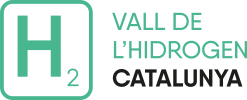A project funded by the Marie Skłodowska-Curie programme of the European Union, a pioneer in legislating for the ecological transition
The Universitat Rovira i Virgili will open up a pioneering research line to train legal specialists in the field of the emerging hydrogen economy. The latest call of the Marie Skłodowska-Curie Actions (MSCA), the European Union’s benchmark programme for doctoral and postdoctoral training, has awarded the project “Training for a Hydrogen Economy based Renewable Energy Society in the Anthropocene (THERESA)” to the consortium headed by the URV and with the universities of Groningen (Netherlands) and East Finland.
In fact, the project will be the first European network of doctoral research on hydrogen regulation. The funding of 1,625,659 euros will make it possible to train and employ six specialists in the field of renewable hydrogen and the economy, which is already beginning to develop, although the legislative framework is still highly fragmented and there are very few academic legal studies. As an emerging economy, it presents risks, uncertainties and legal and academic challenges that need to be addressed. In this regard, the THERESA project has a triple focus: to reduce sectoral fragmentation, to stimulate socio-environmental sustainability, and to promote the circular use of hydrogen, and social commitment in the hydrogen economy.
The researcher from the Department of Public Law, Endrius Cocciolo, is at the head of the project. Using three methodological approaches (doctrinal constructivism, empirical legal research and comparative legal studies), he aims to “advance scientific knowledge and train the human capital necessary to contribute to the development of the hydrogen economy by integrating the legal dimension.” For this reason, THERESA will include a training programme that will provide new researchers with theoretical, methodological and practical skills and take into account the gender dimension and other aspects of social inclusion both in the selection of these researchers and in the execution of the project.
Funded by the European Union’s Marie Skłodowska-Curie programme to train legal specialists in the hydrogen society, the project is part of Catalonia Hydrogen Valley, the strategic initiative that is coordinated by the URV and which in conjunction with the country’s leading institutions and companies, is working to promote green hydrogen as an energy vector for the present and future. In the context of climate emergency and socio-ecological transition, hydrogen is an energy vector that will facilitate the transition to an energy system based on renewable energies. It can replace natural gas and help fossil fuel-based economic sectors reduce their greenhouse gas emissions.
